

Biographical Writing
Be a biographer! Learn to write a biography, family history, biographical novel, write a biographical magazine article or even an obituary. Great online course - learn from dedicated and enthusiastic tutors.
Enable Javascript to automatically update prices.
All prices in Australian Dollars.
- Description
- Course FAQs
- Meet the Academics
- Related Ebooks
Learn the importance of research and research techniques
Learn about different types of research, where to start gathering information, and how to apply the art of fiction to the craft of a biography. In the final lesson, you'll write a 2000 - 4000 word biography and receive individual feedback from our academic staff.
Biographical writing can be large-scale, and cover a person's whole life, or it can be small scale, and cover only a short period, from a week to a few years. Sometimes the subject's life is the entire focus. Other times, it's his or her work, or their life in the context of a particular philosophy or achievement.
A biography is neither a diary nor a journal. It's more than a collection of ‘she did this’ and ‘he did that’. Although biographies are writing about life, it's more useful to think of them as a collection of writings about life events. What are the key events? How do these tie around a central theme or purpose?
Lesson Structure
There are 8 lessons in this course:
- The difference between a biography and autobiography
- Unauthorised biographies
- Using ghost writers in biographies
- Choosing your subject
- Biography vs. Memoir
- Types of Evidence
- Using Evidence
- Where to find evidence
- Conducting an Interview
- How to deal with conflicting sources and information
- Citations and Referencing
- Determining Your Theme
- Developing the theme
- Themes and Structure
- Using Context
- Principles of the Short Biography
- Distilling Information
- Preparing to write from life experience
- What makes a comprehensive biography comprehensive?
- Writing a Great Biography
- Voice in Writing
- The Short Outline
- The Detail-Heavy Outline
- Outlining the biography
- Defining a theme, writing to a central theme
- Word Budget
- Organising Chapter Content
- Writing a Sales Package
- The Publishing Process
- Publishing Processes for Ebooks
- Self-Publishing Your Work
- Distributing and Selling your Work
- Grants for Writing
- In this final lesson, you will bring together everything that you have been learning to undertake research and construct a first draft of a biographical piece of between 2,000 and 4,000 words.
Each lesson culminates in an assignment which is submitted to the school, marked by the school's tutors and returned to you with any relevant suggestions, comments, and if necessary, extra reading.
- Determine when, why, where and how biographies are written.
- Determine sources of information and then acquire appropriate information for a biography.
- To decide on the type of biography and context in which it should be developed, based upon researched information.
- Write different types of short biographies to meet different purposes.
- Analyse a life to determine the structure, style and content of a comprehensive biography that could become a small book, large book, or screenplay.
- Plan a type of biography.
- Determine how a biographical manuscript may be dealt with after writing is completed by the author; to produce and market a finished product.
- Apply knowledge and skills developed throughout this course, to research and produce a biographical short story.
What You Will Do
- Discuss how topics are integrated into a biography and how they help or hinder the work.
- Create a biographical timeline.
- Locate a biography, in print or online, and assess the referencing used.
- Identify a theme or themes in a biographical work and think about how events in the work tie back to the theme.
- Research copyright and libel laws in your area.
- Research letters requesting information or interviews with experts or other sources.
- Locate two pieces of primary evidence, then two pieces of secondary evidence for the topic of your choice. Keep notes on how you found your evidence and what makes it primary and secondary respectively.
- Research short bios of “ordinary” people.
- Analyse the life of a person you’d like to write about. Look at this task from the perspective of deciding what content you would include and the best structure and style to use for this particular subject.
Examples of biographical writing might include:
- An historical account of someone's life, such as the explorer Douglas Mawson
- An account of someone's philosophy in the context of their life, sometimes generally, sometimes for motivational reasons.collection of interviews about a person's life
- A feature article discussing only one or two aspects of the subject's life, through empirical research or anecdotal research (interviews with the subject, people who know the subject etc.)
- A biopic, or film representation of a person's life – the screenplays or teleplays for such work are a form of biographical writing
- A play about a subject's life, or period in their life.
A biography may be short or long, a book or short story, a profile written for promotional purposes or an obituary to celebrate a person's life.
ENROL or Use our FREE Course Advice Service to Connect with a Tutor
How can I start this course?
You can enrol at anytime and start the course when you are ready. Enrolments are accepted all year - students can commence study at any time. All study is self paced and ACS does not set assignment deadlines. Please note that if a student is being assisted by someone else (e.g. an employer or government subsidy), the body offering the assistance may set deadlines. Students in such situations are advised to check with their sponsor prior to enrolling. The nominal duration of a course is approximately how long a course takes to complete. A course with a nominal duration of 100 hours is expected to take roughly 100 hours of study time to complete. However, this will vary from student to student. Short courses (eg. 100 hrs duration) should be completed within 12 months of enrolment. Certificates, Advanced Certificates and Awards (eg. over 500 hours duration) would normally be completed within 3 -5 years of enrolment. Additional fees may apply if a student requires an extended period to complete. If a student cannot submit their assignments for 6 months to ACS, they should advise the school to avoid cancellation of their student registration. Recommencement fees may apply.
Simply click on the ENROL OPTIONS button at the top of this screen and follow the prompts.
You can see the course price at the top of this page. Click 'enrolment options' to see any payment options available.
You can pay by Credit Card, PayPal, Afterpay or bank transfer.
Yes! We have payment plans for most courses. Click 'enrolment options' to see the available payment plans. We also have Afterpay that will allow you to pay for your course or payment plans in four instalments (if you are in Australia).
What do I need to know before I enrol?
There are no entry requirements that you need to meet to enrol in our courses, our courses are for everyone. If you are under 18, we need written permission from your parent/ guardian for your enrolment to continue, we can arrange that after you have enrolled.
You don’t need to purchase any additional resources to complete our courses.
We aim to teach you the essentials without you having to purchase any specific computer program. We recommend that you have access to a word processing program, such as Microsoft Word or Google Docs, so that you can easily complete and submit your assignments.
You sure can. We are here to help you learn whatever your abilities.
Yes, if you are enrolling in a Certificate or Advanced Certificate, you might be eligible for credits if you have evidence of your previous studies or relevant experience. More information is here.
We recommend that you are able to browse websites, send emails and conduct online research. You will need to be able to type and submit your assignments. If you have limited computer skills, we can make special arrangements for you.
This is possible, it depends on the institution. We recommend that if you would like to use our courses that you contact the institution first. Our Course Handbook is a good resource for this.
Our courses are written in English and we only have English speaking academic staff. If you can read and complete your assignments in English, our courses are ideal for you.
Our courses are designed to build knowledge, hands on skills and industry connections to help prepare you to work in the area, running your own business, professional development or as a base for further study.
This course has been designed to cover the fundamentals of the topic. It will take around 100 hours to complete, which includes your course reading, assignment work, research, practical tasks, watching videos and anything else that is contained in the course. Our short courses are a great way to do some professional development or to learn a new skill.
It’s up to you. The study hours listed in the course are a rough guide, however if you were to study a short course (100 hours) at 10 hours per week, you could finish the course in 10 weeks (just an example). Our courses are self-paced, so you can work through the courses in your own time. We recommend that you wait for your tutor to mark and return your assignment before your start your next one, so you get the benefits of their feedback.
The course consists of course notes, videos, set tasks for your practical work, online quizzes, an assignment for each lesson (that you receive feedback from your tutor from) and ends in an exam (which is optional, if would like to receive the formal award at the end), using our custom built Learning Management System - Login.Training.
Our courses are designed for adults to gain professional development and skills to further their careers and start businesses.
Our custom online learning portal allows you to conduct your learning online. There may be practical tasks that you can do offline. You have the option of downloading your course notes or print them to read later. There is also the option to pay an additional fee for printed course notes and or USB (availability limited to location and deliverability).
Yes, if you don’t have access to the internet, you can receive the course as paper notes or on a USB stick for an additional fee. We can also make alternative arrangements for you to send your assignments to us.
We offer printed notes for an additional fee. Also, you can request your course notes on a USB stick for an additional fee.
Yes, your tutor is here to help you. Simply post any questions you have in your login.training portal or contact the office and we can pass on a message to your tutor.
We are more learning focussed, rather than assessment focussed. You have online quizzes to test your learning, written assignments and can complete an exam at the end of the course (if you want to receive your certificate). You will not receive a pass/ fail on your course work. If you need to add more details on your assignment, we will ask you to resubmit and direct you where you need to focus. If you need help, you can ask your tutor for advice in the student room.
Each module (short course) is completed with one exam. Exams are optional, however you must sit an exam if you would like to receive a formal award. You will need to find someone who can supervise that you are sitting the exams under exams conditions. There is an additional cost of $60 incl. GST for each exam. More information is here
There are practical components built into the course that have been designed to be achieved by anyone, anywhere. If you are unable to complete a task for any reason, you can ask your tutor for an alternative.
When you complete the course work and the exam and you will be able receive your course certificate- a Statement of Attainment. Otherwise, you can receive a Letter of Completion.
You can bundle the short courses to create your own customised learning bundle, Certificates or Advanced Certificates. More information is on this page.
Yes, our courses are built to be applicable for people living anywhere in any situation. We provide the fundamentals, and each student can apply their own unique flair for their own interests, region and circumstances with the one-on-one guidance of a tutor. There is also a bit of student directed research involved.
Employers value candidates with industry skills, knowledge, practical skills and formal learning. Our courses arm you with all of these things to help prepare you for a job or start your own business. The longer you study the more you will learn.
ACS has an arrangement with OAMPS (formerly AMP) who can arrange Professional Indemnity from Australian and New Zealand graduates across all disciplines. Ph: 1800 222 012 or email [email protected].
Who are ACS Distance Education?
ACS Distance Education have been educating people for over 40 years.
We are established and safe- we have been in education for over 40 years. We are focused on developing innovative courses that are relevant to you now and what you will need to know in the future. We are focused on helping you learn and make the most of your experience. You can enrol at any time, you can work on your course when it suits you and at your own pace. We are connected to many industry bodies and our staff participate in continuous improvement and learning activities to ensure that we are ahead of what learning is needed for the future.
Our courses are not accredited by the Australian Government. However many of our courses are recognised and held in high regard by many industry bodies.
Our courses are written by our staff, who all have many years experience and have qualifications in their speciality area. We have lots of academic staff who write and update our courses regularly.
How do I enrol my staff/ sponsored students?
Yes, you can do a request for a bulk enrolment and request an invoice on our Invoice Request Form
We can prepare an invoice, quote or proforma invoice. Simply complete your details on our Invoice Request form
We can arrange bulk discounts for your course enrolment, please get in touch with us to discuss your needs.
Yes, we have many students who are in locked facilities, such as prisons or hospitals. We can cater by also offering paper notes at an additional cost.
What if I have any more questions or need more information?
We can assist you to find the right course for your needs. Get in touch with us via email ([email protected]) call on +61 7 5562 1088 or complete our course advice form.
Take a look at their testimonials here.
What if I change my mind?
Our terms and conditions of enrolment are here.
Please get in touch with [email protected] if you would like to be removed from our mail list.
If you would like ACS Distance Education to delete your information at any time (whether you are a customer or a prospective customer), please contact our privacy officer and we will process this ( [email protected] ).
Course Contributors
The following academics were involved in the development and/or updating of this course.

Unsure about which course is best for you?

[The course] provides a thorough introduction to the practices of Life Coaching. It provides very good learning materials and practical assignments at end of each lesson. The comments from my tutor are always very encouraging and positive. The services from school administrative staff are excellent [and] the course is recognised by Association of Coaching, UK.
Subscribe to Our Newsletter
Course enquiry.
Take advantage of our personalised, expert course counselling service to ensure you're making the best course choices for your situation.
I agree for ACS Distance Education to contact me and store my information until I revoke my approval. For more info, view our privacy policy .


- Free Course Counselling
- All Courses
- Horticulture
- Continuing Professional Development (CPD)
- Design your own
- Ecotourism and Adventure Activities
- Engineering and Construction
- Environmental
- Hospitality
- Information Technology
- Leisure Management and Fitness
- Photography
- Self Designed
- Small Business
- Training / Teaching
- Writing and Journalism
- ACS Plagiarism Policy
- Course Fees
- Design Your Own Course
- Exam Application
- How to Enrol
- Recognition for Prior Learning
- Refund Policy
- Requesting Updated Documents
- Sample Course Notes
- Sample Exams
- Terms and Conditions
- WORK PLACE PROJECTS
- ACS Qualifications
- Green Education
- Learning Methods
- Problem Based Learning
- Professional Associations
- Study for Work
- Studying on the Internet
- Free Handbook
- All Free Information Pages
- 21st Century Education
- Adventure and Ecotourism
- Agriculture
- Alternative Living
- Animal Farming
- Biological Sciences
- Coaching and Counselling
- Distance and Online Education
- Employment and Training
- Environment
- Fitness News
- Garden Design
- Gardening News
- Natural Health
- Recreation and Fitness
- Accreditation and Recognition
- Code of Practice
- Our Principal
- Privacy Policy
- Student Testimonials
- Why Study with ACS
- Your Questions Answered
- Australian Site
- UK & Europe Site
- Online Training System
- The Careers Guide
- Horticulture Website
- StudyACS Website
- Affiliate & Course Licensing Website
- Sustainable Living Site
- Trade Courses Site
- ACS Book Shop
- ACS e-Book Shop
- ACS Specialist Websites
- Newsletters
- Licensing ACS Courses
- Student Login
Writing a Biography
Learn to write biographies.
This course is relevant to biographical writing for:
- Books and Screenplays
- Profiles (e.g. in a conference program, a government submission, or a business report),
- Obituaries,
- Newspaper articles, Magazines, Web Sites, Social Media listing, or anywhere else
Biographies are hugely popular, whether you are a film star, have been resident in the White House, or are a war veteran, biographies provide a rich source of reading for many. They can provide information about eras, experiences, and about the world.
Do you have an interest in people and in their experiences?
Would you like to write about events and experiences that are an inspiration to others?
Study Biographical Writing with ACS and learn about the processes of writing - from determining the initial concepts, through planning, and obtaining evidence, through to editing, publishing , and marketing a work.
Lesson Structure
There are 8 lessons in this course:
- The difference between a biography and autobiography
- Unauthorised biographies
- Using ghost writers in biographies
- Choosing your subject
- What do biographies cover?
- Fiction versus Non fiction
- Uses for biographies
- Biography vs. Memoir
- Types of Evidence - primary, secondary
- Using Evidence
- Where to find evidence - newspapers, diaries, research, interviews
- Conducting an Interview
- Secondary sources - reference books, biographies, online sources, libraries, archives
- How to deal with conflicting sources and information
- Citations and Referencing
- Ways to reference
- The law - slander and libel
- Information in the public domain
- Using themes
- Determining Your Theme
- Mapping links
- Defining purpose
- Developing the theme
- Themes and Structure
- Using Context
- General planning
- Unauthorised versus authorised biographies
- Considering rights
- Protecting copyright
- Principles of the Short Biography
- How to start
- Distilling Information
- Social media bios
- Magazine profiles
- Professional bio
- Preparing to write from life experience
- What makes a comprehensive biography comprehensive?
- Writing about living versus deceased
- Writing a Great Biography
- Voice in Writing
- Some essential writing skills
- The Short Outline
- The Detail-Heavy Outline
- Outlining the biography
- Defining a theme, writing to a central theme
- Word Budget
- Organising Chapter Content
- Writing a Sales Package
- The Publishing Process
- Publishing Processes for Ebooks
- Self-Publishing Your Work
- Distributing and Selling your Work
- Grants for Writing
- In this final lesson, you will bring together everything that you have been learning to undertake research and construct a first draft of a biographical piece of between 2,000 and 4,000 words.
WHAT YOU LEARN HERE HAS A MULTITUDE OF APPLICATIONS
Biographies are used in many different areas of writing. Books may seem the most obvious area where a biography is written. There are a lot of authorised and unauthorised biographies available as books. But not everyone wants to write a whole book about a particular person. There are other areas, such as –
- Screenplays – biographies can be used to developed screenplays for films, such as the Frost/Nixon biography
- Business reports
- Newspaper articles
- Magazine articles
- Website articles
- Social media listings
- Conference programmes
- Professional profiles
- Government submissions
- Resumes/CVs
- Biographies can be short stories, or a full-length book.
Biography or Memoir?
While these terms are often used interchangeably, there is a distinct difference between biographies and memoirs. Biographies are dependent on research and can be written by the subject (autobiography) or about an other subject (biography). They may be considered historical documents.
Memoirs are written by the subject and are not considered historical documents. There is usually little research involved, unless it is required for deepening an aspect of the telling or providing some context. This is because memoirs are about an individual perspective, as opposed to documenting or chronicling a life history.
Although memoirs require less research, it is often a good idea to read around the general area you intend to write about and gather other perspectives. It can also help you situate your personal story, or think about in a new way, which may prove helpful to you. Memoirs do not have to be comprehensive or linear. They can be written about a single period, life event, interest, or aspect.
Comprehensive biographies rarely have sequels unless new information comes to light. This is especially true when the subject is deceased. If the subject is living, a sequel may be released after enough time has passed. This is commonly seen in celebrity biographies.
Shorter biographies may have follow-ups, which cover later life or earlier life.
Memoirs may have sequels, because they cover a smaller portion of the subject's life. The writer and neurologist Oliver Sacks published many books, each dealing with a different section of his work or life.
WHY STUDY WITH ACS?
There are lots of reasons why you should sign up to do this course with us, including:
- The course is detailed to ensure that you have the level of knowledge required to apply the practices in your own work, whether that's as a business employee or as a self employed writer
- Within each lesson you have the opportunity to apply your learning to activities which enables you to practice different concepts and expand your own research in areas of interest
- Knowledge of these key areas will enable you to stand out from other applicants when it comes to applying for jobs, it will also give you greater confidence
- Having the knowledge of different writing techniques will enable you to work in many different sectors and business types, giving you flexibility now and in the future
- Our subject specialist tutors will be there to support you throughout your course, they are only too happy to share their industry knowledge and experience with you
- When studying with us you set your own deadlines, meaning you study at your own pace enabling it to fit around other commitments
TAKE THE NEXT STEP AND ENROL NOW!
You can enrol on the course now, but if you have any questions about the content of the course or studying with ACS, then please get in touch with us today - use our FREE COURSE COUNSELLING SERVICE to get in touch with our expert tutors . They will be pleased to help you!

Rachel Syers

Peta Jinnath Abdul

Tracey Jones

Creative Writing

English Grammar

Professional Writing

Technical Writing

It's Easy to Enrol
Select a Learning Method
$461.00 Payment plans available.
Take advantage of our personalised, expert course counselling service to ensure you're making the best course choices for your situation.
How to Write a Biography
Learn how to write a biography with our comprehensive guide.

Last updated on Dec 8th, 2023
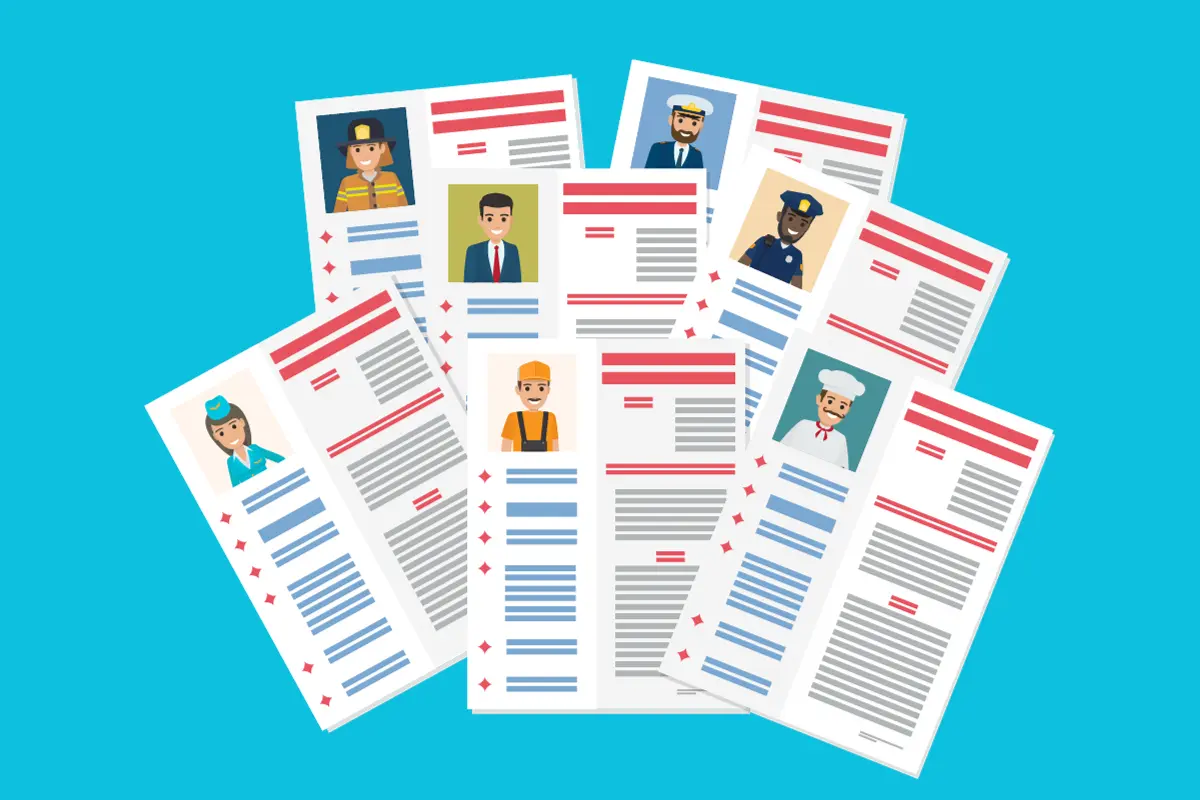
When you click on affiliate links on QuillMuse.com and make a purchase, you won’t pay a penny more, but we’ll get a small commission—this helps us keep up with publishing valuable content on QuillMuse. Read More .
Table of Contents
How to write a biography can be a fun challenge as you share someone’s life story with readers. You may need to write a biography for a class or decide to write a biography as a personal project. Once you’ve identified the subject of your biography, do your research to learn as much as you can about them. Then, immerse yourself in writing the biography and revising it until it’s best. What I am going to share with you in today’s post is how to write a biography. If you want to know the rules of how to write a biography correctly then this post of ours is essential for you.
Introduction
While it’s true that most biographies involve people in the public eye, sometimes the subject is less well-known. But most of the time, famous or not, the person we’re talking about has an incredible life. Although your students may have a basic understanding of How to write a biography, you should take some time before putting pen to paper to come up with a very clear definition of biography.
Before knowing how to write a biography, let’s first understand what a biography is. A biography is an account of a person’s life written by someone else. Although there is a genre called fictional biography, by definition biographies are mostly non-fiction. In general, biographies trace the subject’s life from early childhood to the present day or until death if the subject is deceased.
Biography writing is not limited to describing the bare facts of a person’s life. Instead of just listing basic details about their upbringing, interests, education, work, relationships, and deaths, a well-written biography should also paint a picture of a person’s personality as well as that person’s life experiences.
Tips and Tricks For How To Write a Biography
1. ask the subject’s permission to write a biography.
Here are the first tips on how to write a biography. Before starting your research, make sure you get your subject’s consent to write their biography. Ask them if they’re ready to be the subject. Getting their permission will make writing a biography much easier and ensure that they are open to information about their lives.
If the theme does not allow you to write a bio, you can choose another theme. If you decide to publish a profile without the subject’s permission, you may be subject to legal action from the subject.
If the topic no longer exists, you don’t need to ask permission to write about them.
2. Research primary sources on the topic
Primary sources may include books, letters, photographs, diaries, newspaper clippings, magazines, Internet articles, magazines, videos, interviews, existing biographies, or autobiographies on the subject. Find these resources in your local library or online. Read as much as you can about the topic and highlight any important information you come across in your sources.
You can create research questions to help you focus your research on this topic, such as:
What do I find interesting about this topic? Why is this topic important to readers?
3. Conduct interviews with subjects and their relatives
Interviewing people will turn your research into reality: the people you interview will be able to tell you stories you can’t find in history books. Interview the subject as well as people close to them, such as spouses, friends, business associates, family members, co-workers, and friends. Interview in person, over the phone, or via email.
For in-person interviews, record them with a voice recorder or voice recorder on your computer or phone. You may need to interview the subject and others multiple times to get the documents you need.
4. Visit places important to the topic
Whenever you want to know how to write a biography, to understand the history of the subject, spend time in places and areas that are significant to the subject. This may be the subject’s childhood home or neighborhood. You can also visit the subject’s workplace and regular meeting places.
You may also want to visit areas where the subject made important decisions or breakthroughs in their life. Being physically present in the area can give you an idea of what your subjects may have felt and help you write about their experiences more effectively.
5. Research the time and place of the subject’s life
Contextualize your subject’s life by observing what’s going on around them. Consider the period in which they grew up as well as the history of the places they lived. Study the economics, politics, and culture of their time. See current events happening where they live or work.
When you studying how to write a biography, ask yourself about time and place:
What were the social norms of this period?
What happened economically and politically?
How has the political and social environment influenced this topic?
6. Make a timeline of a person’s life
To help you organize your research, create a timeline of a person’s entire life, from birth. Draw a long line on a piece of paper and sketch out as many details about a person’s life as possible. Highlight important events or moments on the timeline. Include important dates, locations, and names.
If you think about how to write a biography You can also include historical events or moments that affect the topic in the timeline. For example, a conflict or civil war may occur during a person’s lifetime and affect their life.
7. Focus on important events and milestones
Major events can include marriage, birth, or death during a person’s lifetime. They may also achieve milestones like their first successful business venture or their first civil rights march. Highlights key moments in a person’s life so readers clearly understand what’s important to that person and how they influence the world around them.
For example, you might focus on one person’s achievements in the civil rights movement. You could write an entire section about their contributions and participation in major civil rights marches in their hometowns.
8. Cite all sources used in biography
Most biographies will include information from sources such as books, journal articles, magazines, and interviews. Remember to cite any sources that you directly quote or paraphrase. You can use citations, footnotes, or endnotes. If the biography is for a course, use MLA, APA, or Chicago Style citations according to your instructor’s preference.
9. Reread the biography
Check the biography for spelling, grammar, and punctuation. Circle all punctuation marks in the text to confirm they are correct. Read the text backward to check for spelling and grammar errors.
Having a biography full of spelling, grammar, and punctuation errors can frustrate readers and lead to poor grades if you submit your work to the class.
10. Show your biography to others to get their feedback
It is a momentous step of how to write a biography. Once you have completed your draft biography, show it to your colleagues, friends, teachers, and mentors to get their feedback. Ask them if they have a good understanding of someone’s life and if the biography is easy to read. Be open to feedback so you can improve the biography and make it error-free. Revise profile based on feedback from others. Don’t be afraid to trim or edit your biography to suit your readers’ needs.
11. Use flashbacks
Flashbacks happen when you move from the present to the past. You can start with the present moment, and then bring in a scene from the person’s past. Or you could have one chapter focusing on the present and one focusing on the past, alternating as you go.
The flashback scene must be as detailed and realistic as the present-day scene. Use your research notes and interviews with subjects to better understand their past to reminisce.
For example, you can move from a person’s death in the present to reminiscing about their favorite childhood memory.
12. Outline Your Story Chronologically
This is another important step in how to write a biography is to write an outline that describes your story in chronological order. An outline is a tool that helps you visualize the structure and key elements of your story. This can help you organize your story into chapters and sections.
You can write your plan in a digital document or draw it with pen and paper. Remember to store your outline in an easily accessible place so you can refer to it throughout the writing process.
What citation style should I use for my biography?
Use MLA, APA, or Chicago Style citations based on your instructor’s preference when citing sources in your biography.
Should I include personal opinions in a biography?
No, a biography should be objective and based on facts. Avoid injecting personal opinions or bias into the narrative.
What’s the difference between a biography and an autobiography?
A biography is written by someone else about a person’s life, while an autobiography is written by the subject themselves about their own life.
Can I write a biography about a living person?
Yes, you can write a biography about a living person with their consent. Ensure you respect their privacy and follow ethical guidelines when writing about them.
Conclusion
Other than creating a sense of closure, there are no set rules about how a biography ends. An author may want to summarize their main points about the subject of their biography. If the person is still alive, the author can inform the reader about their condition or circumstances. If the person has died, inheritance can be discussed. Authors can also remind readers how they can learn from the biographical subject. Sharing a closing quote or about a person can leave the audience with a point to consider or discuss in more detail.
For further insights into writing and to avoid common mistakes, check out our article on Most Common Mistakes in Writing . Additionally, explore the Best Writing Tools for Writers to enhance your writing skills and discover the tools that can assist you. If you’re looking to improve your typing speed and accuracy, our article on How to Type Faster with Accuracy offers valuable tips.
How we've reviewed this article
Our content is thoroughly researched and fact-checked using reputable sources. While we aim for precision, we encourage independent verification for complete confidence.
We keep our articles up-to-date regularly to ensure accuracy and relevance as new information becomes available.
- Current Version
- Dec 8th, 2023
- Oct 22nd, 2023
Share this article
Leave a Comment Login Please login to comment 0 Comments Inline Feedbacks View all comments
Prev Previous Next Next
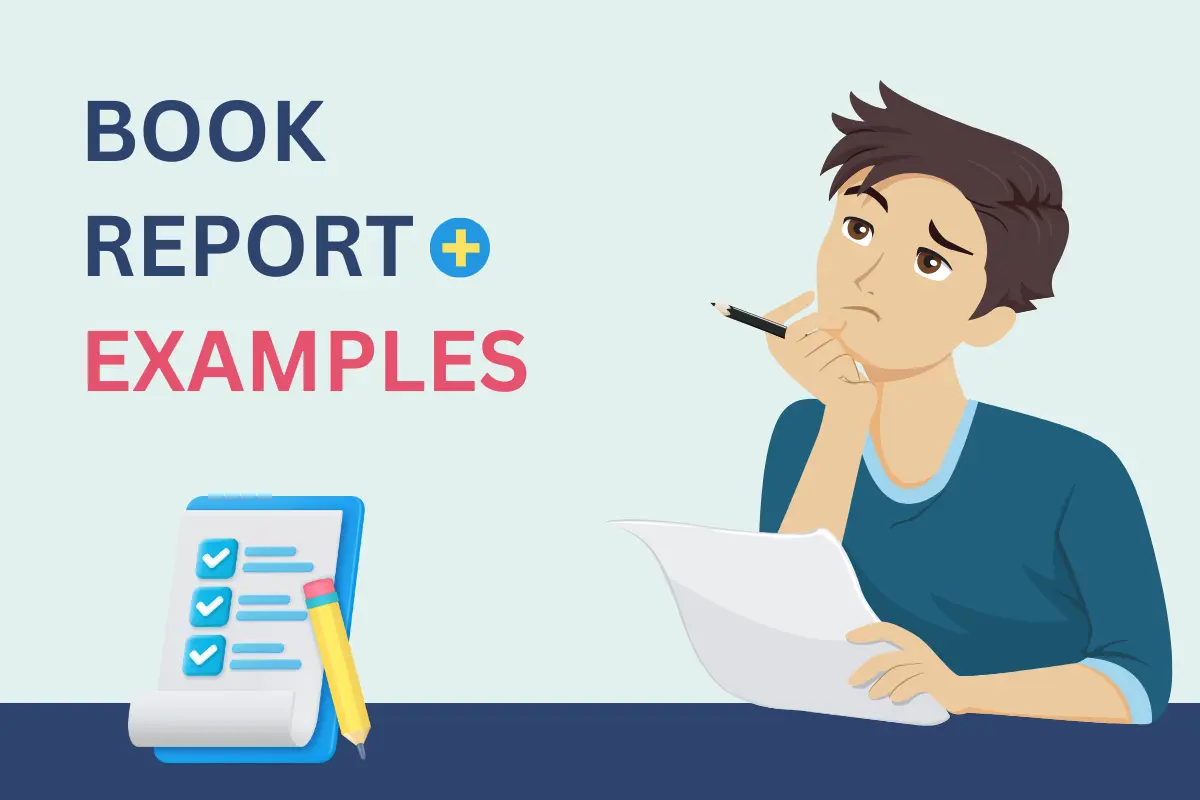
How to Write a Book Report With Examples in 4 Easy Steps
Do you have a book report to complete and want to know how to write a book report? We are right here for you! Book reports are useful in learning because they help students enhance their knowledge and critical thinking skills. At the same time, they give authors a detailed

How to Become a Technical Writer
Technical writing is a highly valuable skill. It is crucial for anyone working in a tech-related business, for engineers and scientists communicating their technical knowledge, and for people looking for rewarding, full-time work as writers. There is a question among people about ‘How to be a technical writer without experience?’.

Top 10 Common Writing Errors: You Must Avoid
A writing error could be useless in the shape of linguistic use, spelling, accentuation, or word choice that makes your paper less lucid, and more troublesome to read. In this article, we are thinking about discussing common writing errors that are important when you write something. So explore this post
Report this article
Let us know if you notice any incorrect information about this article or if it was copied from others. We will take action against this article ASAP.
- Profile Page
- Edit Profile
- Add New Post
Read our Content Writing Guide .
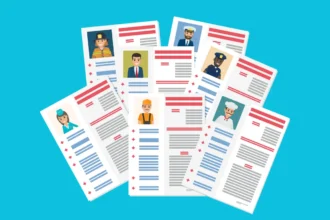
- Join for Free
Introduction to Autobiographical Writing
A course by césar tejeda , storyteller, editor, and scriptwriter.
Learn to reconstruct your memories using narrative tools and create autobiographical stories
- Spanish with subtitles in English
- 99% positive reviews ( 150 )
- 2979 students
- Information

Draw on your memory and life experiences to craft a literary project. Autobiographical writing requires a continuous analysis of memories to reconstruct your past and develop a narrative based on it.
In this course, learn how to write autobiographical stories. Storyteller, editor, and scriptwriter César Tejeda teaches you how to combine narrative techniques with your memory to tell stories that can only be found in your mind.
What will you learn in this online course?
14 lessons & 16 downloads

- 14 lessons (1h 52m)
- 16 additional resources (1 files)
- Online and at your own pace
- Available on the app
- Audio: Spanish
- Spanish , English , Portuguese , German , French , Italian , Polish , Dutch
- Level: Beginner
- Unlimited access forever
What is this course's project?
Write a short story based on your experiences that takes place over the course of a single day.

Projects by course students

By vnaranjoinostroza
Who is this online course for?
Anyone interested in telling stories about their personal experiences using creative writing.
Requirements and materials
Basic writing and composition skills are needed for this course.

vsalascarrillo
Este curso me ha parecido una joya, la verdad creo que vale muchisisísimo más de lo que cuesta. La información es muy valiosa y está organizada de manera muy clara y práctica. Es un curso muy rico en recursos: nuevas lecturas, ejercicios muy interesantes, etc. Lo recomiendo mucho tanto si ya escribes, pero no sabes cómo acercarte a tu propia vida desde la escritura, como si quieres iniciar en la escritura creativa.
View translation
Hide translation
Es un curso completo, el profe explica de manera clara y cn ejemplos precisos. Gracias!
delphine.weisse
Intéressant
alfredovalderrama8
Es dinámico y esclarecedor y nos permite ver las diferentes posibilidades de la escritura autobiográfica,
Muito prático e interessante. Super completo na vertente autobiográfica.
- More reviews

César Tejeda A course by César Tejeda
César Tejeda is a storyteller, editor, and scriptwriter from Mexico City. Over the course of his career, he has written two novels– Épica de bolsillo para un joven de clase media (Planeta, 2012) and Mi abuelo y el dictador (Caballo de Troya, 2017)–as well as a collection of essays titled La compulsión autobiográfica (Alacraña, 2021, undergoing editing).
As a scriptwriter, he has collaborated with Canal 11 and Canal 22, from Mexican cultural television, and written for documentaries and feature-length fiction films. As an editor, he has worked with Penguin Random House, the UNAM Literature Department, and the magazines Este País and Los Suicidas , where he also served as director. He is currently the editor at Ediciones Antílope as well as one of its founding members. On top of it all, César shares his knowledge as a teacher at different schools and academies.
Introduction
- Presentation
- What will we do in the course?

Theoretical tools
- Discussions around autobiographical writing
- Center of gravity
- Autobiographical genres
- Narrative tools
- Dramatic tools
Practical tools
- Betrayals of memory
- Documentary writings and intertextual writings
- Open structures
Conclusions
- Tips for carrying out the writing
- From the short story to the autobiographical novel
- And after writing, what do I do with my work?
Final project
- Write autobiography
What to expect from a Domestika course
Learn at your own pace.
Enjoy learning from home without a set schedule and with an easy-to-follow method. You set your own pace.
Learn from the best professionals
Learn valuable methods and techniques explained by top experts in the creative sector.
Meet expert teachers
Each expert teaches what they do best, with clear guidelines, true passion, and professional insight in every lesson.
Certificates Plus
If you're a Plus member, get a custom certificate signed by your teacher for every course. Share it on your portfolio, social media, or wherever you like.
Get front-row seats
Videos of the highest quality, so you don't miss a single detail. With unlimited access, you can watch them as many times as you need to perfect your technique.
Share knowledge and ideas
Ask questions, request feedback, or offer solutions. Share your learning experience with other students in the community who are as passionate about creativity as you are.
Connect with a global creative community
The community is home to millions of people from around the world who are curious and passionate about exploring and expressing their creativity.
Watch professionally produced courses
Domestika curates its teacher roster and produces every course in-house to ensure a high-quality online learning experience.
Domestika's courses are online classes that provide you with the tools and skills you need to complete a specific project. Every step of the project combines video lessons with complementary instructional material, so you can learn by doing. Domestika's courses also allow you to share your own projects with the teacher and with other students, creating a dynamic course community.
All courses are 100% online, so once they're published, courses start and finish whenever you want. You set the pace of the class. You can go back to review what interests you most and skip what you already know, ask questions, answer questions, share your projects, and more.
The courses are divided into different units. Each one includes lessons, informational text, tasks, and practice exercises to help you carry out your project step by step, with additional complementary resources and downloads. You'll also have access to an exclusive forum where you can interact with the teacher and with other students, as well as share your work and your course project, creating a community around the course.
You can redeem the course you received by accessing the redeeming page and entering your gift code.
- Non-Fiction Writing
- Storytelling

Courses you might be interested in
Need Assistance? 01384 442752 (UK)
BIOGRAPHICAL WRITING BWR205
Learn how to write a Biography with ACS Distance Education.

- Develop ideas about who and what to choose for a biography.
- Learn about the processes of writing a biography.
- Understand about researching for a biography and the types of evidence touse.
- Learn about editing, publishing, and marketing a biography.
- Write a biographical piece as part of your studies.
Study Biographical Writing and learn about who and what to write about.

- Learn about different types of research, where to start gathering information, and how to apply the art of fiction to the craft of a biography.
- Study the editing and marketing processes.
- In the final lesson, you will write a 2000 - 4000 word biography and receive individual feedback from our academic staff.
Biographical writing can be large-scale, and cover a person's whole life, or it can be small scale, and cover only a short period, from a week to a few years. Sometimes the subject's life is the entire focus. Other times, it's his or her work, or their life in the context of a particular philosophy or achievement.
A biography is neither a diary nor a journal. Although biographies are writing about life, it is more useful to think of them as a collection of writings about life events. What are the key events? How do these tie around a central theme or purpose?

1. Scope and Nature of Biographical Writing
- The difference between a biography and autobiography.
- Unauthorised biographies.
- Using ghost writers in biographies.
- Choosing your subject.
- Biography vs. Memoir.
- Researching a Biography.
2. Researching a Biography
- Types of Evidence.
- Using Evidence.
- Where to find evidence.
- Conducting an Interview.
- How to deal with conflicting sources and information.
- Citations and Referencing.
3. Developing Context
- Determining Your Theme.
- Developing the theme.
- Themes and Structure.
- Using Context.
4. Short Biographies
- Principles of the Short Biography.
- Distilling Information.
- Preparing to write from life experience.
5. Comprehensive Biographies
- What makes a comprehensive biography comprehensive?
- Writing a Great Biography.
- Voice in Writing.
6. Planning a Biography
- The Short Outline.
- The Detail-Heavy Outline.
- Outlining the biography.
- Defining a theme, writing to a central theme.
- Word Budget.
- Organising Chapter Content.
- Writing a Sales Package.
- The Publishing Process.
- Publishing Processes for Ebooks.
- Self-Publishing Your Work.
- Distributing and Selling your Work.
- Grants for Writing.
8. Project: Writing a Biography

A the end of each lesson there is an assignment for students to complete and submit to the school. This will be marked by the school's tutors and returned to the student with any relevant suggestions, comments, and if necessary, extra reading.
Biographies are hugely popular, whether you are a film star, have been resident in the White House, or are a war veteran, biographies provide a rich source of reading for many. They can provide information about eras, experiences, and about the world.
- Do you have an interest in people and in their experiences?
- Would you like to write about events and experiences that are an inspiration to others?
- Study Biographical Writing with ACS and learn about the processes of writing - from determining the initial concepts, through planning, and obtaining evidence, through to editing, publishing , and marketing a work.
LEARN MORE.
If you have any questions, please do get in touch with us - connect with our expert tutors, use our FREE COURSE COUNSELLING SERVICE .
Stay in Touch. Follow us on:
Twitter Facebook Google
Courses can be started anytime from anywhere in the world!
Credentials.
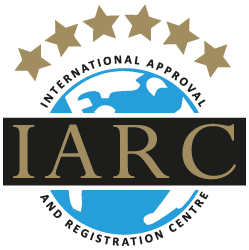
Meet some of our academics

Check out our eBooks
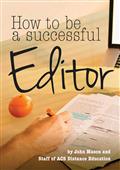
Course Enquiry
Fill the form and send us your questions. Our staff will contact you shortly.
JavaScript seems to be disabled in your browser. For the best experience on our site, be sure to turn on Javascript in your browser.
Help Centre
Biography writing

Choose a start date
- Taught: Thu, Daytime
- Time: 12:30 - 14:30
- Dates: 30 May 2024 - 04 July 2024
- Location: Keeley Street
- Tutors: Robert Fraser
- Taught: Wed, Daytime
- Time: 14:45 - 16:45
- Dates: 30 October 2024 - 04 December 2024
Course Code: HW261
- Dates: 30/05/24 - 04/07/24
Duration: 6 sessions (over 6 weeks)
- Tutor: Robert Fraser
Choose a start date
Download form & post
Any questions? [email protected] or call 020 4582 0415
Please note: We offer a wide variety of financial support to make courses affordable. Just visit our online Help Centre for more information on a range of topics including fees, online learning and FAQs.
What is the course about?
This course will help you develop a critical awareness of this genre of writing, to think about what makes a good biography, why we read it and what it might tell us about its subjects and our interest in them. Classes are designed for anyone who enjoys learning more about writers' lives, and about how we describe, explore and write about the experiences of other people. You'll develop confidence in using this knowledge to attempt your own experiments in life writing.
What will we cover?
- Definitions of biography, autobiography and memoir. - History of English biography. - Ethics of biography. - Biographical techniques and method. - The use of sources, memory and recollection in life writing. - The uses of biography and its limitations as a way of understanding writers.
What will I achieve? By the end of this course you should be able to...
- Think critically and intelligently about what biographies are for and why we read them. - Understand the leading features of a very important genre of writing and how biographies are put together. - Feel more confident about making your own experiments in life writing.
What level is the course and do I need any particular skills?
The course requires no specific qualifications other than a keen interest in literature and in reading and writing. It would not suit anyone who does not have a good level of spoken and written English.
How will I be taught, and will there be any work outside the class?
Teaching will be by tutor-led discussion, small group discussion, and each session will include a writing exercise. Short homework writing exercises and optional reading lists will be given each week. All writing courses at City Lit will involve an element of workshop. This means that students will produce work which will be discussed in an open and constructive environment with the tutor and other students. The college operates a policy of constructive criticism, and all feedback on another student’s work by the tutor and other students should be delivered in that spirit. For classes longer than one day regular reading and writing exercises will be set for completion at home to set deadlines. City Lit Writing endeavours to create a safe and welcoming space for all and we strongly support the use of content notes in our classes. This means that learners are encouraged to make their tutor and classmates aware in advance if any writing they wish to share contains material that may be deemed sensitive. If you are unsure about what might constitute sensitive content, please ask your tutor for further clarification and read our expectations for participating in writing courses at City Lit .
Are there any other costs? Is there anything I need to bring?
Please bring writing materials. If you'd like to prepare yourself, the best single introduction is Hermione Lee's 'Biography, A Very Short Introduction' (Oxford University Press) but there are no set text books. Weekly handouts will be provided.
When I've finished, what course can I do next?
All students are invited to join us at Late Lines , our regular performance night for City Lit writers. Students are also encouraged to submit their work to Between the Lines , our annual anthology of creative writing. For the latest news, courses and events, stay in touch with the Department on Facebook and Twitter .
Professor Robert Fraser has published a number of biographies of modern British poets, as well as critical works on authors as diverse as Marcel Proust and the anthropologist Sir James Frazer. He has also written memoir, much journalism and performed plays on the lives of Dr. Johnson, Byron and D.H. Lawrence. He is a Fellow of the Royal Society of Literature and is currently Professor Emeritus of the Open University.
Please note: We reserve the right to change our tutors from those advertised. This happens rarely, but if it does, we are unable to refund fees due to this. Our tutors may have different teaching styles; however we guarantee a consistent quality of teaching in all our courses.
Purdue Online Writing Lab Purdue OWL® College of Liberal Arts
Welcome to the Purdue Online Writing Lab

Welcome to the Purdue OWL
This page is brought to you by the OWL at Purdue University. When printing this page, you must include the entire legal notice.
Copyright ©1995-2018 by The Writing Lab & The OWL at Purdue and Purdue University. All rights reserved. This material may not be published, reproduced, broadcast, rewritten, or redistributed without permission. Use of this site constitutes acceptance of our terms and conditions of fair use.
The Online Writing Lab at Purdue University houses writing resources and instructional material, and we provide these as a free service of the Writing Lab at Purdue. Students, members of the community, and users worldwide will find information to assist with many writing projects. Teachers and trainers may use this material for in-class and out-of-class instruction.
The Purdue On-Campus Writing Lab and Purdue Online Writing Lab assist clients in their development as writers—no matter what their skill level—with on-campus consultations, online participation, and community engagement. The Purdue Writing Lab serves the Purdue, West Lafayette, campus and coordinates with local literacy initiatives. The Purdue OWL offers global support through online reference materials and services.
A Message From the Assistant Director of Content Development
The Purdue OWL® is committed to supporting students, instructors, and writers by offering a wide range of resources that are developed and revised with them in mind. To do this, the OWL team is always exploring possibilties for a better design, allowing accessibility and user experience to guide our process. As the OWL undergoes some changes, we welcome your feedback and suggestions by email at any time.
Please don't hesitate to contact us via our contact page if you have any questions or comments.
All the best,
Social Media
Facebook twitter.
- Utility Menu
Guide to the ALM Capstone Project
Customstyles.
- Course Catalog
Capstone: Historical Biography
“There is properly no history; only biography.” – Ralph Waldo Emerson The capstone offers an opportunity for students to engage in the challenges of writing historical biography. We reflect on the ways that biographers explore individual lives in the context of wider historical forces – how biographers connect the public and private lives of their subjects, and how they engage in careful historical research to craft engaging narratives. We begin by reading and discussing award-winning historical biographies alongside more theoretical discussions of the craft of biography. Students then undertake original historical research on an individual of their own choosing. Together, through our weekly meetings, we form an enthusiastic and supportive writing workshop. — Ariane Liazos, Faculty
Pre-capstone
This course builds on the work done in HIST E-597b . Students use the research and writing skills they have developed to produce a sample chapter of a biography, one that could be submitted as part of a book proposal, or a biographical article for an academic journal. Students include a bibliography and endnotes with their final submission. This semester predominantly consists of workshops of student writing-in-progress; students are evaluated on the feedback they provide for each other.
Ariane Liazos, PhD Lecturer in Extension, Harvard University
Course Links
Precapstone Course: HIST E-597b Precapstone: Historical Biography Capstone Course: HIST E-599b Capstone: Historical Biography
- Course Sequencing
- International edition
- Australia edition
- Europe edition
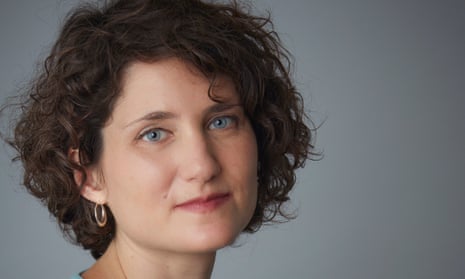
How to write a biography: A practical workshop with Lara Feigel
Lara Feigel leads this skill-sharpening virtual workshop that will help you to explore the essential elements of writing a life history Online workshop Date: Tuesday 28 February 2023 Time: 6pm-8.30pm Catch up recording available
This course has now passed, but you can be the first to know about the next one - and other workshops like this - by signing up to our newsletter here .
Fundamental to every good book is the strength of the story - and this applies to non-fiction as much as it does fiction. In biography, whether the subject matter is serious or light, and whether it focuses on one person or a group of people, it is crucial to tell your story engagingly and intimately.
In an evening, biography writer Lara Feigel will take you through the essential elements of writing biography, whether you’re a beginner with a desire to learn more about the creative process behind biographical writing, or you’ve identified a person or group you’d like to write about, and you’re raring to get started.
You will come having completed some pre-course homework that will enable you to arrive ready to build on your preparation, and over an interactive evening, you will learn the importance of selecting your subject and identifying why you have chosen them, where to begin and end your story, how to find and refine your narrative voice, how the non-fiction book market works - and more.
Drawing on elements of writing fiction to strengthen your creative toolkit and leave you feeling confident in your ability to take your research further and deeper, this practical, interactive workshop will provide the foundation for the rest of your biography-writing career.
Course content
Choosing a subject: a single person versus a group
Where to begin and end: the story of a whole life versus a section of a life
Finding your voice, using techniques drawn from novels
Practical exercise
Advice on writing book proposals and finding an agent; Q&A
This course is for...
Beginners who want to learn more about the creative process for biographical writing as well as writers from other fields who would like to make a start in biography.
Those working on a biographical project but a pre-existing project is not required to attend.
Tutor profile
Lara Feigel is the author of two group biographies (The Love-Charm of Bombs: Restless Lives in the Second World War and The Bitter Taste of Victory: Love, Life and Art in the Ruins of the Reich) and a book which blends memoir with biography (Free Woman: Life, Liberation and Doris Lessing). She is a Professor of Modern Literature and Culture at King’s College London and writes regularly in the Guardian.
Date: Tuesday 28 February 2023 Times: 6pm-8.30pm GMT Price: £65 (plus £3.56 booking fee)
A catch up recording will be shared after the class and will be available for two weeks.
This masterclass is available globally. If you are joining us from outside the United Kingdom, please use this time zone converter to check your local live streaming time.
6pm GMT | 7pm CET | 10am PST | 1pm EST
You will be sent a link to the webinar 24 hours and 30 minutes before the course start time. Please email [email protected] if you do not receive the access link.
About Guardian Masterclasses
Purchasing tickets to our online classes is a powerful way to fund the Guardian; thank you for your support. Sign up to our newsletter and you’ll be among the first to find out about our latest courses and special offers. You can also follow us on Twitter , Instagram and LinkedIn .
We aim to make Guardian Masterclasses accessible to all. If you require any adjustments to enable your participation in this course, please get in touch with us at [email protected].
By proceeding, you agree to the Guardian Masterclasses Terms and Conditions . To find out what personal data we collect and how we use it, please visit our Privacy Policy .
Returns policy
Once a purchase is complete we will not be able to refund you where you do not attend or if you cancel your event booking. Please see our terms and conditions for more information on our refund policy.
- Guardian Masterclasses
Most viewed
Secondary Menu
Biography, life writing, autofiction, curriculum codes, cross-listed as.
- HISTORY 611
Typically Offered
- Collective Statement on Climate, Conduct, and Values
- Statement on Diversity & Inclusion
- Statement on Harassment and Discrimination
- Film & Media Concentration
- How GCT is Different
- Honors Thesis & Graduation with Distinction (AY 2024-2025)
- Other Journal
- Trinity Ambassadors
- Ph.D. Degree
- Cost & Financial Support
- Graduate Life
- Dissertation Titles
- Program Alumni
- Applying to the Program
- Frequently Asked Questions
- Mentoring & Advising
- Progress Toward Degree Requirement
- Language Requirement
- Teaching Assistantships
- Preliminary Exam
- Chapter Workshop
- Dissertation Defense
- Professional Development
- What to Do When
- Preparing Your Application
- Interviews & Campus Visits
- Useful Links
- Job Postings
- Sample Materials
- Spring 2024
- Primary Faculty
- Secondary Faculty
- Graduate Students
- Philosophy, Literature & Aesthetics
- Film & New Media
- Critical Race Theory
- Feminisms, Gender & Sexuality
- Globalization & Postcoloniality
- Literary & Cultural Studies
- Marxism & Critical Theory
- Modernism & Modernity
- Psychoanalysis
- Science Studies
- The Americas & the U.S.
- Books By Our Faculty
- Programs and Courses

Writing Lives: Autobiography in Fiction and Memoir
An undergraduate course offered by the School of Literature, Languages and Linguistics .
- Code GEND3016
- Unit Value 6 units
- Offered by School of Literature, Languages and Linguistics
- ANU College ANU College of Arts and Social Sciences
- Course subject Gender Studies
- Areas of interest English, Gender Studies
- Academic career UGRD
- Mode of delivery In Person
- Offered in See Future Offerings

- Introduction
Learning Outcomes
Indicative assessment, requisite and incompatibility, preliminary reading.
- Offerings and Dates
This course introduces students to a range of genres of life writing, including autobiography, memoir, autobiographical fiction, graphic memoir, testimony and biography. Students will become familiar with critical concepts, terms and approaches used to analyse life narratives, and with debates relating to authenticity, identity, truth, memory and self-representation. Special attention will be paid gender and sexuality, place and memory, and the representation of traumatic personal and historical events in life narrative. The class will explore individualist and relational modes of life writing. Confessional and testimonial paradigms, and the socio-cultural contexts in which authors deploy particular rhetorical modes of address will also be considered.
Upon successful completion, students will have the knowledge and skills to:
- identify features and characteristics of different genres of life-writing;
- explain and apply critical concepts used in analyzing autobiography, memoir, testimonial and autobiographical fiction;
- identify confessional and testimonial paradigms and explain their relevance to life writing
- present detailed textual analysis of life writing narratives, including verbal and visual features of graphic memoir;
- explain current debates relating to authenticity, truth, and self-representation in life writing
The ANU uses Turnitin to enhance student citation and referencing techniques, and to assess assignment submissions as a component of the University's approach to managing Academic Integrity. While the use of Turnitin is not mandatory, the ANU highly recommends Turnitin is used by both teaching staff and students. For additional information regarding Turnitin please visit the ANU Online website.
Tuition fees are for the academic year indicated at the top of the page.
Commonwealth Support (CSP) Students If you have been offered a Commonwealth supported place, your fees are set by the Australian Government for each course. At ANU 1 EFTSL is 48 units (normally 8 x 6-unit courses). More information about your student contribution amount for each course at Fees .
If you are a domestic graduate coursework student with a Domestic Tuition Fee (DTF) place or international student you will be required to pay course tuition fees (see below). Course tuition fees are indexed annually. Further information for domestic and international students about tuition and other fees can be found at Fees .
Where there is a unit range displayed for this course, not all unit options below may be available.
Course fees
Offerings, dates and class summary links.
ANU utilises MyTimetable to enable students to view the timetable for their enrolled courses, browse, then self-allocate to small teaching activities / tutorials so they can better plan their time. Find out more on the Timetable webpage .
First Semester
Responsible Officer: Registrar, Student Administration / Page Contact: Website Administrator / Frequently Asked Questions
- Contact ANU
- Freedom of Information
+61 2 6125 5111 The Australian National University, Canberra CRICOS Provider : 00120C ABN : 52 234 063 906

Our cookies
We use cookies for three reasons: to give you the best experience on PGS, to make sure the PGS ads you see on other sites are relevant , and to measure website usage. Some of these cookies are necessary to help the site work properly and can’t be switched off. Cookies also support us to provide our services for free, and by click on “Accept” below, you are agreeing to our use of cookies .You can manage your preferences now or at any time.
Privacy overview
We use cookies, which are small text files placed on your computer, to allow the site to work for you, improve your user experience, to provide us with information about how our site is used, and to deliver personalised ads which help fund our work and deliver our service to you for free.
The information does not usually directly identify you, but it can give you a more personalised web experience.
You can accept all, or else manage cookies individually. However, blocking some types of cookies may affect your experience of the site and the services we are able to offer.
You can change your cookies preference at any time by visiting our Cookies Notice page. Please remember to clear your browsing data and cookies when you change your cookies preferences. This will remove all cookies previously placed on your browser.
For more detailed information about the cookies we use, or how to clear your browser cookies data see our Cookies Notice
Manage consent preferences
Strictly necessary cookies
These cookies are necessary for the website to function and cannot be switched off in our systems.
They are essential for you to browse the website and use its features.
You can set your browser to block or alert you about these cookies, but some parts of the site will not then work. We can’t identify you from these cookies.
Functional cookies
These help us personalise our sites for you by remembering your preferences and settings. They may be set by us or by third party providers, whose services we have added to our pages. If you do not allow these cookies, then these services may not function properly.
Performance cookies
These cookies allow us to count visits and see where our traffic comes from, so we can measure and improve the performance of our site. They help us to know which pages are popular and see how visitors move around the site. The cookies cannot directly identify any individual users.
If you do not allow these cookies we will not know when you have visited our site and will not be able to improve its performance for you.
Marketing cookies
These cookies may be set through our site by social media services or our advertising partners. Social media cookies enable you to share our content with your friends and networks. They can track your browser across other sites and build up a profile of your interests. If you do not allow these cookies you may not be able to see or use the content sharing tools.
Advertising cookies may be used to build a profile of your interests and show you relevant adverts on other sites. They do not store directly personal information, but work by uniquely identifying your browser and internet device. If you do not allow these cookies, you will still see ads, but they won’t be tailored to your interests.
Course type
Qualification, university name, postgraduate biography writing.
4 degrees at 3 universities in the UK.
Customise your search
Select the start date, qualification, and how you want to study

Related subjects:
- Biography Writing
- British Sign Language
- Broadcasting Studies
- Cinematography
- Communication Design
- Communication Skills
- Communication Studies
- Communications and Media
- Creative Writing
- Digital Arts
- Digital Media
- Documentary Photography
- Film Photography
- Film Special Effects
- Film Studies
- Film and Television Production
- Film and Video Direction
- Film and Video Editing
- Film and Video Production
- Interactive Media
- Mass Communication
- Media Production
- Media Studies
- Non-Fiction Writing
- Novel Writing
- Photography
- Photography history
- Play Writing
- Screenplay Writing
- Script Writing
- Sound Recording
- Television Programme Production
- Television Studies
- Television and Radio Production
- Visual Communication

- Course title (A-Z)
- Course title (Z-A)
- Price: high - low
- Price: low - high
English PhD,MPhil - Life Writing
University of leicester.
English at Leicester All research areas within English are offered as Doctor of Philosophy (PhD) - campus based full-time and Read more...
- 4 years Distance without attendance degree: £5,913 per year (UK)
- 3 years Full time degree: £4,786 per year (UK)
- 6 years Part time degree: £2,393 per year (UK)
MA Creative & Life Writing
Goldsmiths, university of london.
This Masters degree will help you develop your creative writing practice. You’ll experiment with a wide variety of forms to help you Read more...
- 1 year Full time degree: £9,630 per year (UK)
- 2 years Part time degree: £4,815 per year (UK)
MA Research Biography
University of buckingham.
Course outline This cutting-edge programme is unique to Buckingham. A course with wide appeal, it is aimed at anyone who has an interest Read more...
- 1 year Full time degree: £10,300 per year (UK)
- 2 years Part time degree: £3,852 per year (UK)
PhD Biography
Course outline The cutting-edge MA in Biography was founded in 1996, and its emphasis on historical biography remains unique to Buckingham. Read more...
- 3 years Full time degree: £7,680 per year (UK)
- 6 years Part time degree: £3,840 per year (UK)
Course type:
- Distance learning
Qualification:
Related subjects:.
- Skip to navigation
- Skip to content

- University of Maryland School of Dentistry
- Clinical Services
- Hours of Operation
- Fees and Insurance
- Faculty Practice Directory
- Eligibility criteria
- Summary of ASE Clinics
- Becoming a Patient
- Dental Public Health
- Advanced Oral Sciences and Therapeutics
- Comprehensive Dentistry
- Microbial Pathogenesis
- Neural and Pain Sciences
- Oncology and Diagnostic Sciences
- Oral and Maxillofacial Surgery
- Dental Hygiene
- Orthodontics and Pediatric Dentistry
- Artificial Intelligence Research
- Biomaterials and Regenerative Dental Medicine
- Academic Affairs
Office of Institutional Advancement
- Administration and Finance
- Information Technology and Facilities
- Office of Development and Alumni Relations
- Student Affairs
- Administration
- Board of Visitors
- Vision and Purpose
- Communications and Public Affairs
- Conflict of Interest Policies
- Equity, Diversity, and Inclusion
- Faculty Development
- Collections and Archives
- UMFDSP Associates Employment Opportunities
- State Employment Opportunities - Faculty and Staff
- Applicant Resources
- Campus Life
- Summer Tours and Virtual Q&A
- Application Guidelines
- The Dental Admission Test
- Academic Coursework and Prerequisites
- Letters of Recommendation
- Selection/Offers of Admission
- Residency Requirements
- Deferral Policy
- Admission with Advanced Standing
- Endodontics
- Oral & Maxillofacial Surgery
- Orthodontics
- Pediatric Dentistry
- Periodontics
- Prosthodontics
- Oral and Maxillofacial Pathology
- Dual Certificate Perio-Pros
- Bachelor of Science Program
- Clinical Dental Hygiene Leader Track
- Degree Completion Program
- Tuition Programs
- Academic Information
- Postgraduate Application Process
- Student Organizations
- Student Resources & Information
- Scholarship Faculty Recommendation Form
- Board of Directors
- In Memoriam
- Distinguished Alumni
- All Alumni Reunion
- Update Your Information
- Alumni Receptions
- Professional Opportunities
- Course Descriptions
- Annual Giving
- Planned Giving
- Endowment Opportunities
- Give to UMSOD
- Continuing Education
- Proper Pharmacologic Prescribing and Disposal for Dental Practitioners (Dec 2024)
Jade Sutton Administrative Assistant II
650 W. Baltimore Street Suite 6207 Baltimore, Maryland 21201
P 410-706-2282
Proper Pharmacologic Prescribing and Disposal for Dental Practitioners
Register here, speaker biography.

Course Description
Every dentist seeking renewal must complete a two-hour board-approved course on proper prescribing and disposal of prescription drugs. Dentists who do not prescribe prescription drugs are not exempt. For dentists holding drug dispensing permits, the course may not be taken to fulfill the continuing education requirements contained in SB 603, Chapter 267, Laws of Maryland 2012. This course fulfills the MSBDE (COMAR 10.44.22) requirement for re-licensure, which must be completed every other renewal cycle for re-licensure.
Course Objectives
The goal of this course is to articulate and inform licensees about the Maryland State Board of Dental Examiners requirements (COMAR 10.44.22) and to address the role that dental practitioners play in preventing prescription drug abuse.
The prescription drug abuse epidemic: what do we need to know and how to decrease its impact in our community. Review proper writing of prescriptions, disposal of unused medications and protection of prescription pads.
- Identify the problem of prescription drug abuse.
- Identify patients at risk for abuse
- How to mange post op pain without narcotics
- Review proper use and disposable of prescription medications
- Writing of prescriptions and protection of prescription pads
Topics to be covered:
- Prevalence in the population and the Maryland community.
- List commonly abused prescription drugs
- List commonly abused non-prescription drugs
- Definitions of commonly used terms
- Pain Management strategies
- How to recognize prescription drug abuse
- Legal implications of non-medical distribution /sale of prescription drug s
- Mechanisms of addiction
- How to prevent prescription drug abuse
- Chronic pain patients
- Disposal of controlled substances
- Prescription writing review
After completing the course, the participant will be able to:
- Write a prescription in the proper format for an opioid pain reliever
- List the nonopioid drugs as opioid alternatives for post-surgery pain control
- Know the 5 DEA schedules of drugs and the important drugs within each
- List the most commonly abused prescribed drugs
- Recognize dependent patients and doctor shoppers
- Know best practices for handling and disposal of controlled substances
- Be familiar with support services for dependent practitioners
General Cancellation Policy for Continuing Education
Cancellation and Refund Policies
The University of Maryland, Baltimore is the founding campus of the University System of Maryland. 620 W. Lexington St., Baltimore, MD 21201 | 410-706-3100 © 2023-2024 University of Maryland, Baltimore. All rights reserved.

IMAGES
VIDEO
COMMENTS
If you're interested in writing a biography, the following steps can get you started: 1. Get permission. Once you've chosen the subject of the biography, seek permission to write about their life. While in some cases it may not be necessary (like if the subject is a public figure or deceased), getting permission will make the research ...
There are 8 lessons in this course: Scope and Nature of Biographical Writing. The difference between a biography and autobiography. Unauthorised biographies. Using ghost writers in biographies. Choosing your subject. Biography vs. Memoir. Researching a Biography. Types of Evidence.
This course is relevant to biographical writing for: Books and Screenplays. Profiles (e.g. in a conference program, a government submission, or a business report), Resumes, Obituaries, Newspaper articles, Magazines, Web Sites, Social Media listing, or anywhere else. Biographies are hugely popular, whether you are a film star, have been resident ...
Conduct relevant interviews. Whenever possible, seek firsthand accounts from those who knew or interacted with the subject. Conduct interviews with family members, friends, colleagues, or experts in the field. Their insights and anecdotes can provide a deeper understanding of the person's character and experiences.
8. Send a copy to your subject. Consider sending a copy of your manuscript to the person whose life you wrote about in your book. The copy may serve as a thank-you gift, but also, if you intend to publish your work, you will need them to approve, as well as fact check, everything you put into the story.
BIOGRAPHY WRITING Tip: #4 Put Something of Yourself into the Writing. While the defining feature of a biography is that it gives an account of a person's life, students must understand that this is not all a biography does. Relating the facts and details of a subject's life is not enough.
6. Make a timeline of a person's life. To help you organize your research, create a timeline of a person's entire life, from birth. Draw a long line on a piece of paper and sketch out as many details about a person's life as possible. Highlight important events or moments on the timeline.
Autobiographical writing requires a continuous analysis of memories to reconstruct your past and develop a narrative based on it. In this course, learn how to write autobiographical stories. Storyteller, editor, and scriptwriter César Tejeda teaches you how to combine narrative techniques with your memory to tell stories that can only be found ...
Facebook. These are just some of the story elements you can use to make your biography more compelling. Once you've finished your manuscript, it's a good idea to ask for feedback. 7. Get feedback and polish the text. If you're going to self-publish your biography, you'll have to polish it to professional standards.
Plan B: 2 payments of £204.00. 2. Select a learning method *. Online : 5% Discount. E-Learning (supplied on USB Stick) 3. Study Biographical Writing and learn about who and what to write about. Learn about developing ideas, planning, and researching for a biography. Learn about different types of research, where to start gathering information ...
Turn your life into story. Tell the story of your ancestors. Share your experiences with the next generation. Add excitement and energy to your writing. Dozens of writing prompts will jog your memory. Write thematically, chronologically or anecdotally. Bring your work to life with great dialogue. Polish your writing and get into print.
This course will help you develop a critical awareness of this genre of writing, to think about what makes a good biography, why we read it and what it might tell us about its subjects and our interest in them. Classes are designed for anyone who enjoys learning more about writers' lives, and about how we describe, explore and write about the ...
Whether you want to write your own autobiography or desire to write someone else's life, the roadmap for all these ideas is hidden in the " Biography, Autobography and Based On A True Story Writing Course". During the course; you will learn the intricacies of biography, autobiography, memoir and based on a real life fiction.
The Online Writing Lab at Purdue University houses writing resources and instructional material, and we provide these as a free service of the Writing Lab at Purdue. Students, members of the community, and users worldwide will find information to assist with many writing projects. Teachers and trainers may use this material for in-class and out ...
This course builds on the work done in HIST E-597b. Students use the research and writing skills they have developed to produce a sample chapter of a biography, one that could be submitted as part of a book proposal, or a biographical article for an academic journal. Students include a bibliography and endnotes with their final submission.
We would like to show you a description here but the site won't allow us.
History and art of the life story, examining biography as it drives research and contemporary writing. From Montaigne to Rousseau, the biopic to the lives of troubadours, we will study modes, media and social functions: portrait, caricature, meditation, fragments, selfies. The subjects: famous or anonymous people; those who are not human, landscapes, the sea—even inanimate objects. The ...
Non-fiction of all genres (memoir, biography, travel, history, science and politics) is welcome. The aim of this Narrative Non-Fiction writing course is to encourage and inspire, through group discussion and individual exercises. Detailed individual feedback and editing of some of the assignments is a special feature of the course, with the aim ...
This course introduces students to a range of genres of life writing, including autobiography, memoir, autobiographical fiction, graphic memoir, testimony and biography. Students will become familiar with critical concepts, terms and approaches used to analyse life narratives, and with debates relating to authenticity, identity, truth, memory and self-representation.
There are 8 lessons in this course: 1. Scope and Nature of Biographical Writing. The difference between a biography and autobiography. Unauthorised biographies. Using ghost writers in biographies. Choosing your subject. Biography vs. Memoir. 2.
University of Buckingham. (4.1) Course outline The cutting-edge MA in Biography was founded in 1996, and its emphasis on historical biography remains unique to Buckingham. Read more... 3 years Full time degree: £7,680 per year (UK) 6 years Part time degree: £3,840 per year (UK) Request info. Start date.
With the help of nine weekly biography assignments containing tips, guidance and instructions on content and the art of writing, your biography will quickly start to take shape. Short Biography Course The short biography course consists of nine assignments and is designed for anybody who would simply like to write their own biography in a ...
Three Consecutive Saturdays via ZOOM, 2, 9, 16 November 2024: 9am-11am Brisbane Time. Course Fee: $189. For part II of our online poetry series, award-winning poet, Lauren Elise Daniels shares practical lessons to ripen our voices and confidence with precision, accuracy, and theme in distilled works of poetry.
Courses; Novel Writing for Absolute Beginners; Novel Writing for Absolute Beginners CSP-XNVL06W Stanford Continuing Studies. Starting a novel is an exciting venture—and one that can soon turn daunting. Unlike the compressed energy of a short story, the novel's world spools out over time and often involves the management of layered plots and ...
Every dentist seeking renewal must complete a two-hour board-approved course on proper prescribing and disposal of prescription drugs. Dentists who do not prescribe prescription drugs are not exempt. For dentists holding drug dispensing permits, the course may not be taken to fulfill the continuing education requirements contained in SB 603 ...